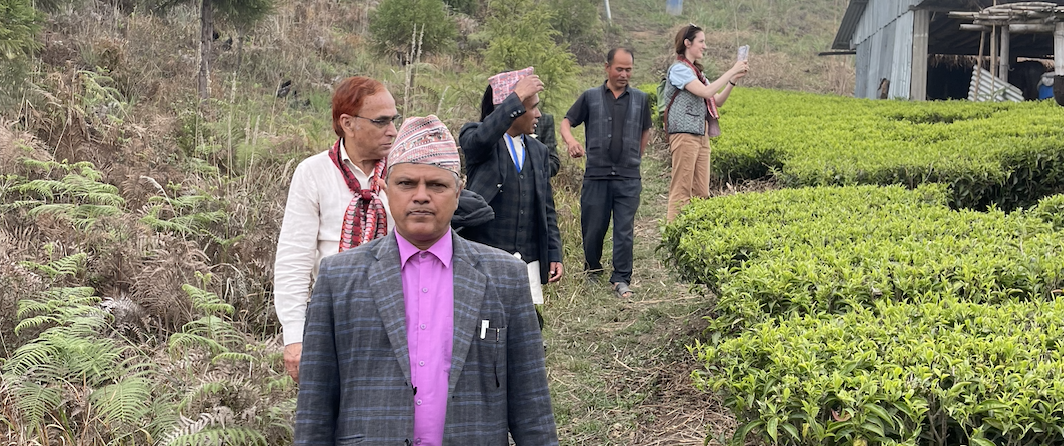
Empowering Communities: What is the role of tea cooperatives in todays tea industry?
Fostering community development, ensuring fair practices, and promoting sustainability within the tea supply chain are crucial aspects of the global tea industry. What is the role of tea cooperatives in all this? This discussion explores various initiatives, challenges, and successes in empowering tea cooperatives globally. A community-focused approach can lead to long-term benefits for the tea industry and the communities involved. Through collaboration, education, and ethical trade practices, sustainable tea communities flourish, creating positive impacts on social, economic, and environmental fronts. Yet there may be challenges around the level of innovation and market impulse. Join us on a journey to explore the benefits and challenges of tea cooperatives in todays economy.
Historical Evolution of Tea Cooperatives
Origins and Growth Tea cooperatives have a captivating historical evolution that can be traced back to ancient civilizations such as China and India. The origins of tea cooperatives can be linked to the collective efforts of farmers and producers who recognized the benefits of working together to cultivate and trade tea. In the early days, these cooperatives served as a platform for sharing knowledge, resources, and risks, laying the groundwork for the cooperative movement that would shape the tea industry.
As time progressed, the growth of tea cooperatives was marked by an increase in membership and the adoption of more formalized structures. This expansion not only bolstered the collective bargaining power of tea farmers but also facilitated the exchange of best practices and innovations within the community. The collaborative nature of these cooperatives not only improved the livelihoods of individual farmers but also contributed to the overall sustainability and quality of tea production. Moreover, the establishment of fair trade practices and organic certifications further enhanced the credibility and market presence of tea cooperatives.
Expansion and Impact The expansion of tea cooperatives heralded a new era for the tea industry, bringing about significant changes in the socio-economic landscape of tea-producing regions. By consolidating resources and streamlining processes, cooperatives empowered small-scale tea growers to compete in the global market, thereby reducing their dependency on middlemen and brokers. This direct access to markets not only resulted in better price realization for farmers but also ensured a fairer distribution of profits along the value chain. Additionally, the adoption of sustainable agricultural practices and eco-friendly packaging by tea cooperatives has positioned them as leaders in the movement towards environmentally conscious tea production.
Furthermore, the impact of tea cooperatives transcended economic benefits, extending to environmental stewardship and community development initiatives. Many cooperatives today actively engage in sustainable farming practices, biodiversity conservation, and social welfare programs, contributing to the overall well-being of tea-growing communities. Collaborations with local educational institutions and research organizations have also led to innovations in tea processing techniques and product diversification, further strengthening the competitive edge of tea cooperatives in the global market.
The historical evolution of tea cooperatives underscores the transformative power of collective action and collaboration in the tea industry. From humble beginnings to becoming key players in the global tea trade, tea cooperatives continue to uphold the principles of solidarity, equity, and sustainability, shaping a brighter future for both tea farmers and tea enthusiasts worldwide.
Examples of Tea Cooperatives within the Tea Rebellion farm network
Tea cooperatives play a vital role in the tea industry, not only in terms of production but also in promoting sustainability and empowering local growers. In this blog section, we will delve into the success stories of three exemplary tea cooperatives - Naturaliltea, Kanchanjangha Tea, and Tinjure Nepal Growers. We will explore how these cooperatives have made a significant impact on the tea industry and their communities.
Naturaliltea: A Success Story
NaturaliTea is a community of 26 member farmers close to Shizuoka, near Nakayama Village, up in the mountains behind the city of Fujieda 200 km from Tokyo in the southeast. The founding family and spiritual leader of this group is the Kinezuka family who are considered Japan’s pioneers of all-natural tea farming. They created NaturaliTea with a mission to “connect People, Agriculture and Nature” and to actively work to address the challenges faced by the farming community and the future of tea in the area.
Toshiaki Kinezuka started farming with all-natural methods back in 1976 and has been following organic practices ever since. This is a great achievement in the midst of Japan’s heavy chemical use in the tea industry. His son Kazuki has now taken over the leadership of the Naturallitea Marketing Cooperative, while his sister Tamiko manages quality of processing and sales.
Founding a cooperative has allowed the farmers to sell together, reaching international buyers, expanding their tea offering into matcha and other specific teas and powders and learning and supporting each other. It also means that farming equipment and processing can be shared.
Sustainability at Kanchanjangha Tea
Kanchanjangha Tea is nestled in the Himalayan foothills in difficult farming terrain. Through innovative farming techniques and community engagement programs, Kanchanjangha Tea has preserved the biodiversity of its surroundings while producing premium teas. In addition to their sustainable farming practices, Kanchanjangha Tea has actively participated in reforestation projects, contributing to the conservation of the fragile ecosystem where they operate.
The enterprise was launched in 1984 by Deepak Baskota along with local farmers on a cooperative model. Over 100 farmers joined hands, pooled their marginal landholdings and became owners of the first orthodox tea garden covering nearly 94 hectares of land. The land, which was barely enough to sustain them, now produces premium, organic, orthodox tea in the Himalayas.
Empowering Tinjure Nepal Growers
Tinjure Nepal Growers, situated in the scenic landscapes of Nepal around Ilam is a cooperative that stands out for its empowerment initiatives. By providing training and resources to local farmers, Tinjure Nepal Growers has uplifted rural communities and enhanced their livelihoods. The cooperative's dedication to social welfare projects has gone beyond tea production, leading to the establishment of schools and healthcare centers in remote areas. Through partnerships with local NGOs, Tinjure Nepal Growers has also focused on women's empowerment programs, ensuring gender equality and inclusivity within their cooperative. Tea Rebellion just started sourcing Green Tea from Tinjure in 2024.
Challenges of Tea Cooperatives
Tea cooperatives, despite their rich history and significant contributions, face a myriad of challenges in today's dynamic market environment. One of the primary hurdles is the need to balance tradition with modernization. As the tea industry evolves with changing consumer preferences and technological advancements, cooperatives must adapt their practices to remain competitive while preserving their cultural heritage and cooperative values.
Another pressing challenge is ensuring the financial sustainability of tea cooperatives. Fluctuating market prices, climate change impacts, and production costs pose financial risks that require strategic planning and risk management strategies. Finding a balance between profitability and social impact remains a delicate tightrope walk for many cooperatives striving to support their members while staying economically viable.
Finally, there is the innovation required to adopt organic and regenerative farming practices and investing in certifications these new practices certify such as Regenerative Organic Certified. With the lower profitability and lower levels of technological innovations on cooperatives, investing into anything new is a higher hurdle than compared to the average commercially run tea farm.
Market Access and Competition
Limited market access and fierce competition present additional challenges for tea cooperatives. In a global marketplace dominated by large corporations and multinational brands, small-scale cooperatives often struggle to secure market share and negotiate fair trade terms. Developing effective marketing strategies, building strong distribution networks, and enhancing brand visibility are essential steps for tea cooperatives to compete effectively and sustain their market presence.
Moreover, meeting quality standards and certifications to meet international market requirements adds another layer of complexity for tea cooperatives. Balancing the demands for organic, fair trade, and sustainable certifications while ensuring product quality and consistency poses a continuous challenge that requires investments in infrastructure, training, and compliance measures.
Collaboration and Innovation
Collaborating with stakeholders across the value chain and fostering innovation are critical strategies for tea cooperatives to address challenges proactively. By partnering with research institutions, industry experts, and governmental agencies, cooperatives can access resources for improving productivity, sustainability, and market competitiveness. Embracing technological advancements in tea processing, packaging, and distribution can unlock new opportunities for efficiency gains and product differentiation, enabling cooperatives to meet evolving consumer demands and market trends.
The journey ahead for tea cooperatives is paved with obstacles, but with strategic planning, innovation, and collective action, these challenges can be transformed into opportunities for growth, resilience, and positive impact. One such collective action is for Tea Cooperatives to join international bodies or project such as the Regenerative Tea Action Project launched by Tea Rebellion in 2024. By staying true to their cooperative principles and leveraging their collective strength, tea cooperatives can navigate the complexities of the tea industry landscape and continue to thrive in a rapidly changing world.
Conclusion
Empowering tea cooperatives plays a vital role in building sustainable tea communities as it can help ensure the long-term success and well-being of tea-growing communities. Support to tea cooperatives needs to also encompass tea technology and agronomic innovation and income diversification to enance financial sustainability. Through collaboration projects and empowerment of key actors and bodies, we can create a more sustainable future for both tea industry and the communities that rely on it.
